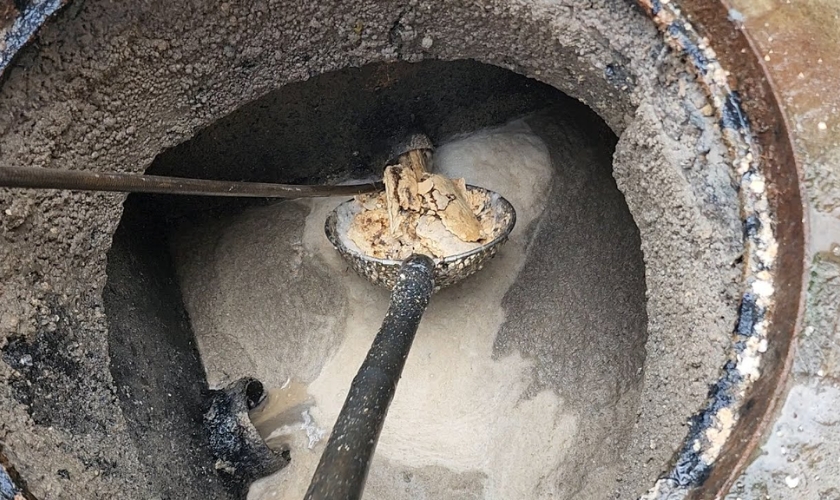A clogged sewer line can disrupt your home’s plumbing and lead to unpleasant issues like water backups and bad odors. Understanding the difference between a clogged drain pipe and a clogged sewer line, recognizing the signs of a sewer blockage, and knowing the appropriate steps to address the problem are essential for homeowners, especially in areas like Pennsylvania where aging plumbing systems are common.
A clogged drain pipe typically affects one specific fixture, such as a sink or toilet, and can often be resolved with basic tools like a plunger or a drain snake.
On the other hand, a clogged sewer line is a more serious issue that affects your entire home. The sewer line is the main pipe that carries wastewater from your home to the municipal sewer or septic system. When this line is blocked, it can cause widespread problems, such as multiple Drains backing up simultaneously or sewage overflowing into your home.
One of the most common signs of a clogged sewer line is when multiple fixtures, like sinks, toilets, and showers, begin to drain slowly or back up simultaneously. This indicates the problem lies in the main sewer line, not an individual drain.
If you notice water backing up into lower-level fixtures, such as the bathtub or shower, after flushing the toilet or running the washing machine, it’s a strong sign of a sewer line clog.
Gurgling sounds coming from your pipes or toilets may indicate trapped air caused by a blockage in the sewer line.
Sewer gas odors in your home or yard often point to a sewer line issue. A healthy sewer system should contain these smells, so their presence is a red flag.
If you constantly find yourself using a plunger to clear clogs in multiple fixtures, the problem likely extends beyond individual pipes to the main sewer line.
A clogged or broken sewer line can lead to wastewater pooling in your yard. This creates soggy patches, often accompanied by a foul odor, especially near the area where the sewer line runs.
As soon as you suspect a clogged sewer line in Pennsylvania, turn off your home’s water supply to prevent further backups or flooding. Avoid using any plumbing fixtures until the issue is resolved.
Fixing a clogged sewer line is not a DIY task. Call a licensed plumber or sewer expert who has the tools and expertise to diagnose and resolve the issue efficiently.
How Professionals Help to Clear Main Sewer Lines More Safely & Efficiently for Homeowners
Professional plumbers use advanced tools and techniques to safely and effectively clear clogged sewer lines. Some common methods include:
When hiring a professional, consider asking these questions to ensure you receive the best service:
A clogged sewer line in Pennsylvania can be a significant inconvenience, but recognizing the signs early and seeking professional help can save you time, money, and stress. By addressing the issue promptly and working with experienced plumbers, you can restore your home’s plumbing system and prevent future problems.
If you suspect a clogged sewer line, don’t delay contact a plumbing expert today to keep your home safe and functioning smoothly.
